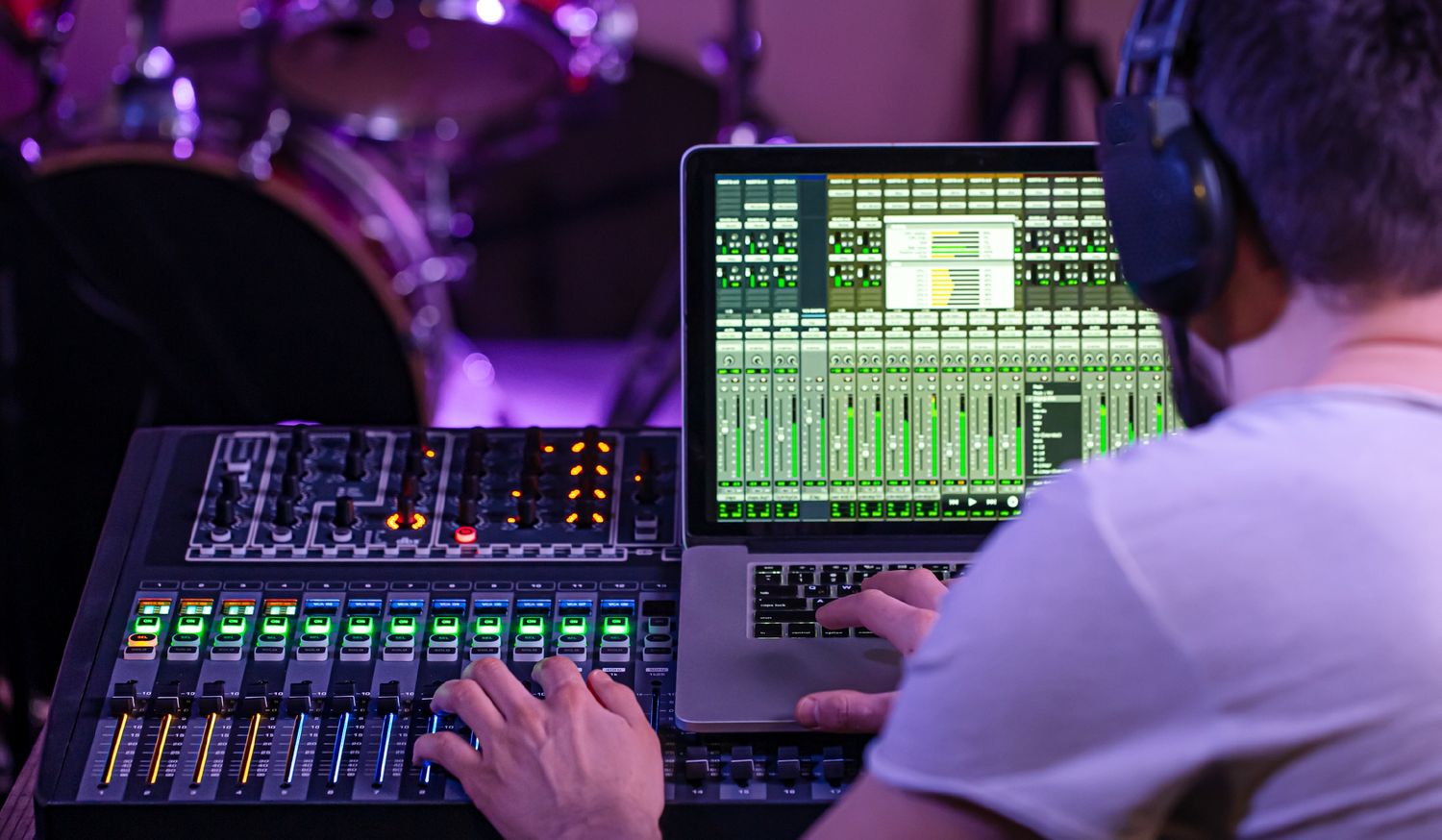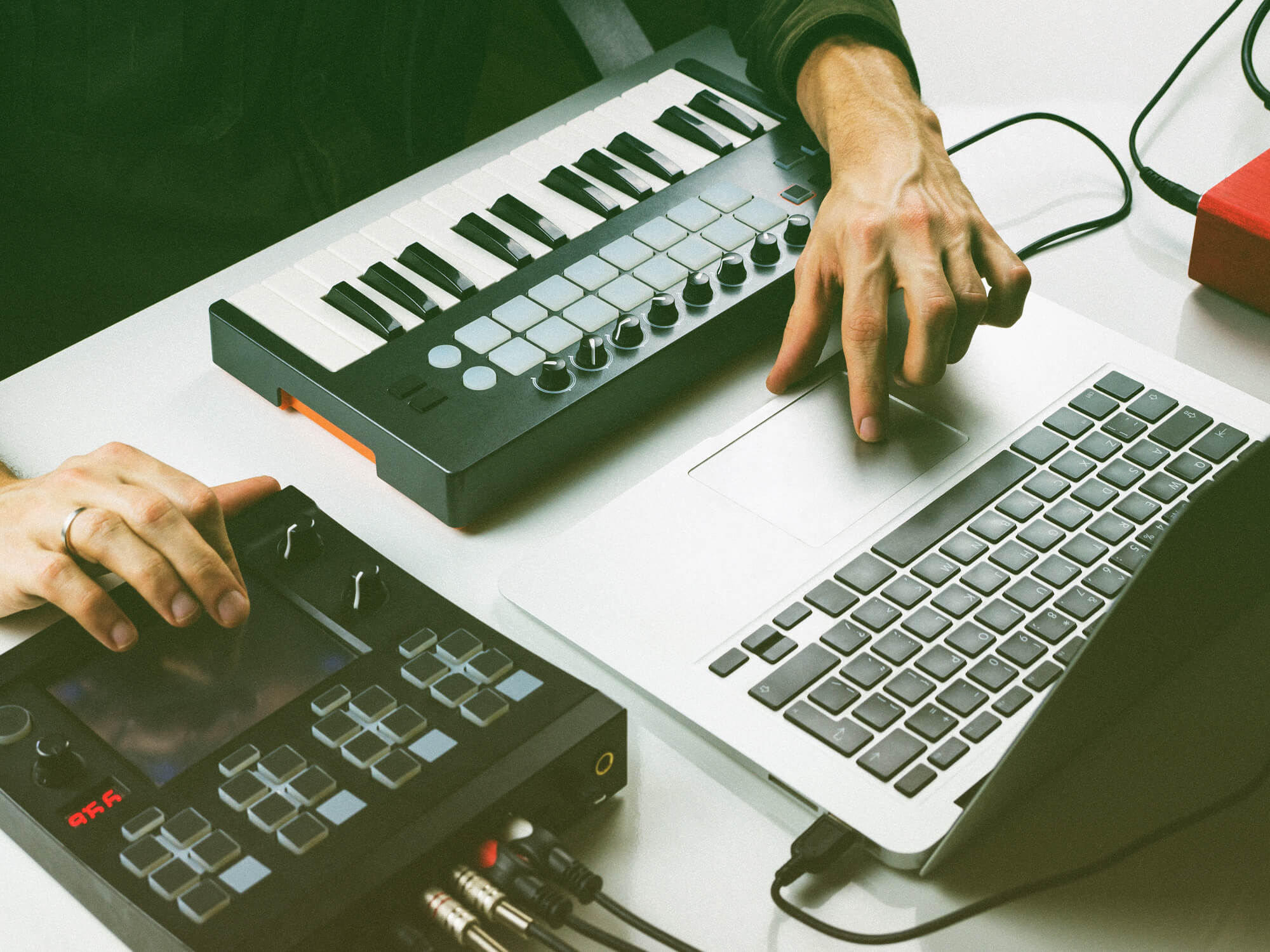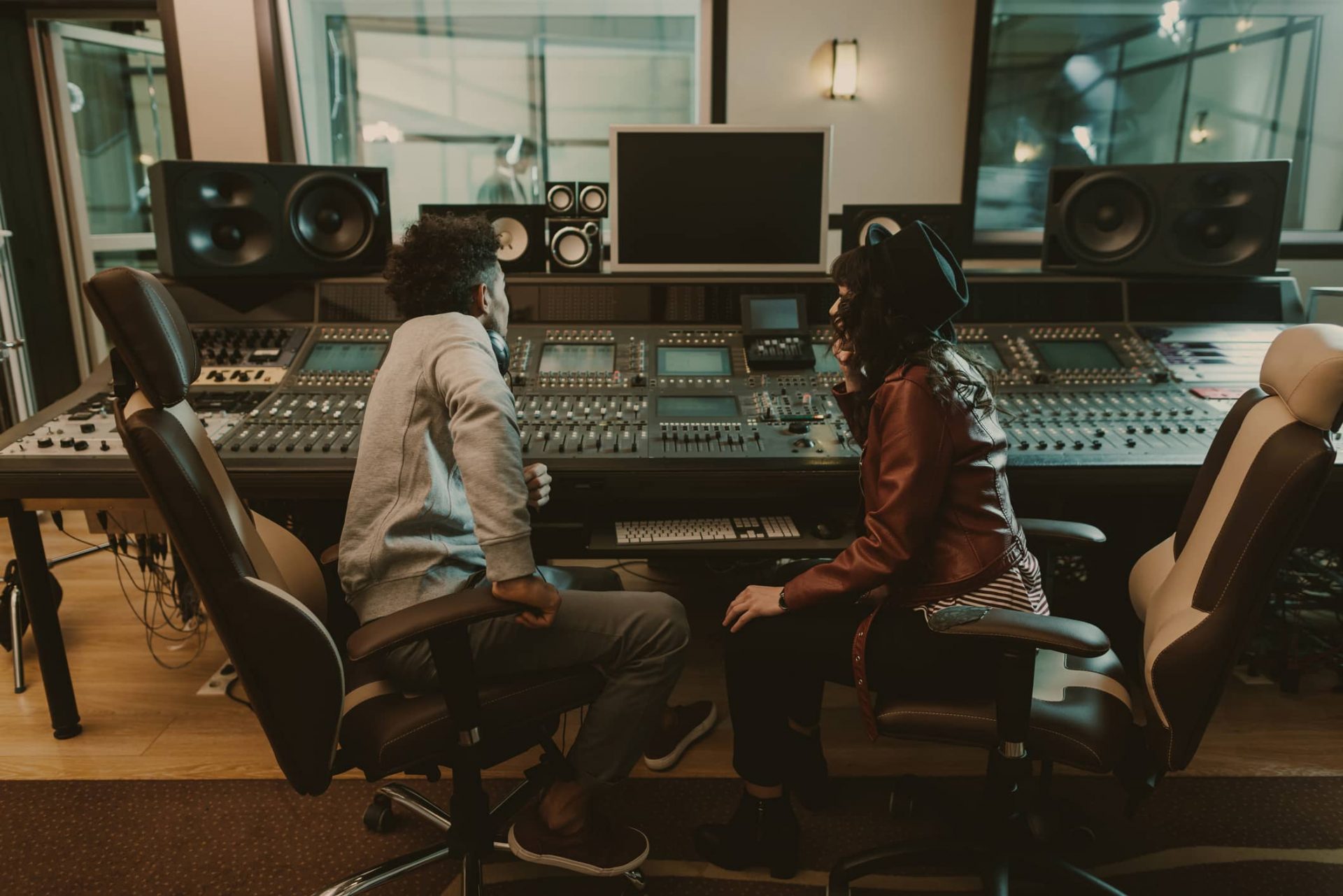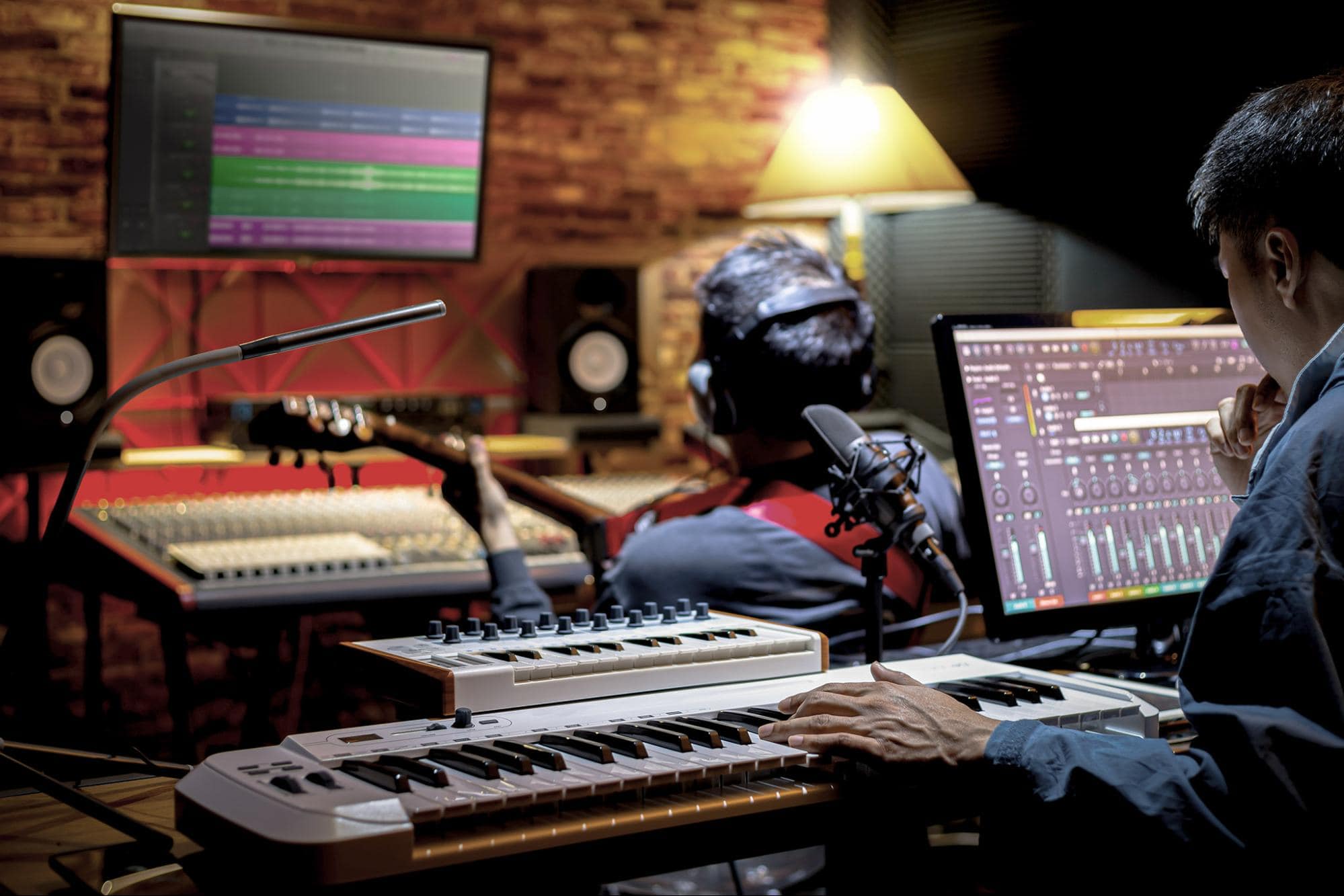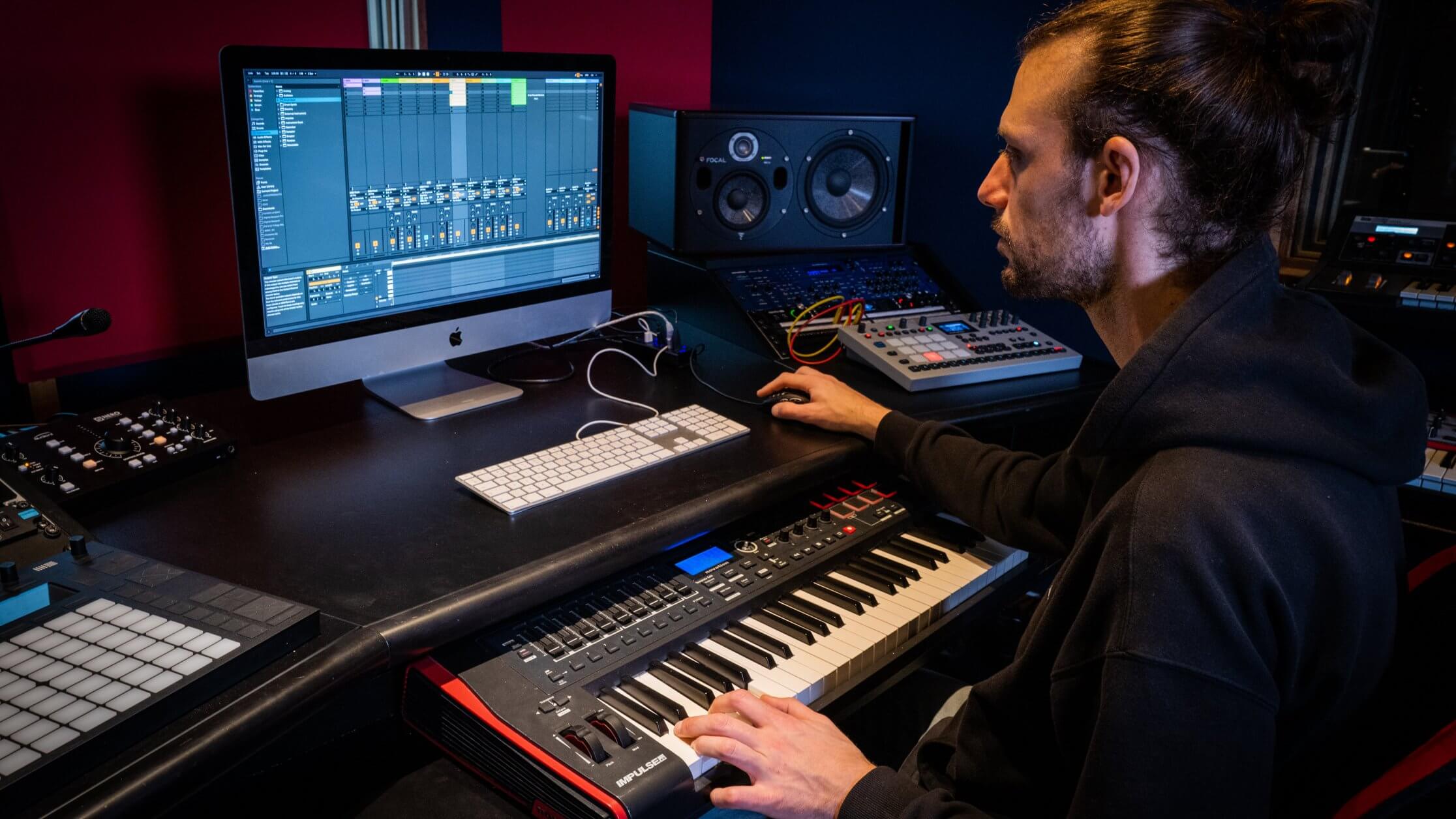Home>Production & Technology>Producer>What Do You Need To Do To Be A Music Producer
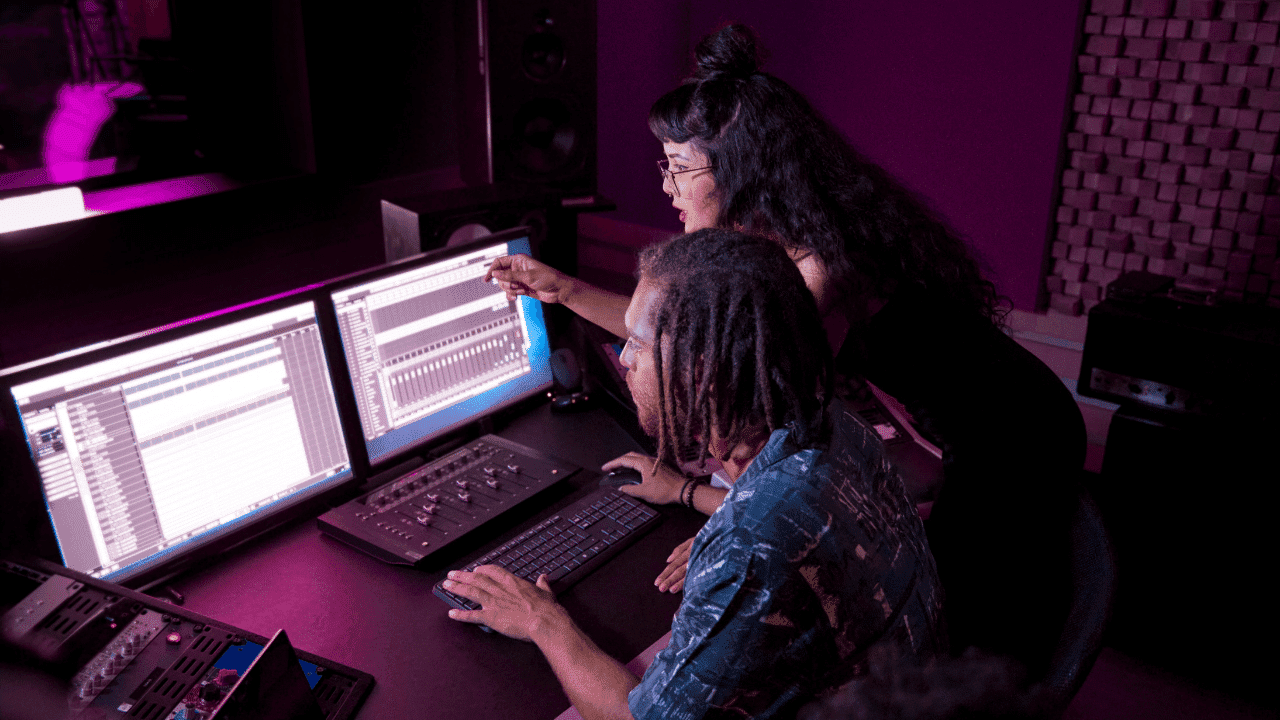

Producer
What Do You Need To Do To Be A Music Producer
Published: March 6, 2024
Learn what it takes to become a successful music producer. Discover the essential skills and steps to kickstart your career in music production.
(Many of the links in this article redirect to a specific reviewed product. Your purchase of these products through affiliate links helps to generate commission for AudioLover.com, at no extra cost. Learn more)
Table of Contents
Introduction
Becoming a music producer is an exciting and challenging journey that requires a blend of creativity, technical skills, and business acumen. Music producers play a pivotal role in the music industry, shaping the sound and direction of songs and albums. They work closely with artists to bring their musical vision to life, utilizing their expertise in sound engineering, arrangement, and overall production.
In today's digital age, the role of a music producer has evolved significantly. With the accessibility of high-quality recording equipment and music production software, aspiring producers have the opportunity to create professional-level music from the comfort of their own homes. However, the path to becoming a successful music producer is not without its hurdles. It demands dedication, perseverance, and a willingness to continually learn and adapt to the ever-changing landscape of the music industry.
In this comprehensive guide, we will delve into the essential steps and strategies for aspiring music producers to kickstart their careers. From honing musical skills to mastering music production software, understanding music theory, networking, building a portfolio, and effectively marketing their work, this guide will provide valuable insights and actionable tips to help budding producers navigate the path to success.
Whether you dream of producing chart-topping hits, collaborating with renowned artists, or carving out your niche in a specific genre, embarking on the journey to become a music producer is an exhilarating pursuit that holds the potential for boundless creativity and artistic fulfillment. So, let's embark on this journey together and uncover the key elements that will set you on the path to realizing your aspirations in the dynamic world of music production.
Develop Musical Skills
Developing strong musical skills is fundamental for anyone aspiring to become a proficient music producer. While technical know-how is crucial, a deep understanding of music itself forms the bedrock of a producer's expertise. Here are the key steps to hone your musical skills:
-
Instrument Proficiency:
- Mastering an instrument, such as the piano, guitar, or drums, can provide invaluable insight into music composition and arrangement. It allows you to grasp the intricacies of melody, harmony, and rhythm, which are essential elements in music production.
-
Ear Training:
- Training your ear to recognize musical nuances, such as pitch, tone, and timbre, is pivotal. This skill enables you to discern subtle variations in sound, aiding in the production, mixing, and mastering processes.
-
Music Composition:
- Learning the art of composition equips you with the ability to craft compelling melodies, harmonies, and arrangements. Understanding song structure and the interplay of different musical elements lays a strong foundation for producing impactful music.
-
Music Genre Exploration:
- Delve into various music genres to broaden your musical palette. Familiarizing yourself with diverse styles and trends enables you to draw inspiration from a wide spectrum of musical influences, enriching your creative capabilities as a producer.
-
Music Analysis:
- Analyzing and deconstructing songs from a producer's perspective provides valuable insights into the techniques and production methods employed by renowned artists. This analytical approach enhances your understanding of how to achieve specific sounds and effects in your own productions.
By diligently honing these musical skills, aspiring music producers can elevate their craft and develop a nuanced understanding of the artistic intricacies that underpin successful music production. These foundational skills serve as the cornerstone for navigating the multifaceted landscape of music production with confidence and creativity.
Learn Music Production Software
Mastering music production software is a pivotal step for aspiring music producers, as it forms the technological backbone of modern music creation. With the evolution of digital audio workstations (DAWs) and a myriad of production tools at their disposal, producers have unprecedented capabilities to sculpt and refine their musical visions. Here's a detailed exploration of the essential aspects of learning music production software:
Familiarize with Digital Audio Workstations (DAWs)
Digital audio workstations serve as the central hub for music production, offering a comprehensive suite of recording, editing, mixing, and mastering capabilities. As a novice producer, it's crucial to select a DAW that aligns with your workflow and creative preferences. Popular DAWs such as Ableton Live, Logic Pro, FL Studio, and Pro Tools provide diverse interfaces and feature sets, catering to a wide spectrum of production styles and genres.
Understanding Signal Flow and Audio Processing
Delving into the intricacies of signal flow within a DAW is essential for harnessing the full potential of music production software. Learning to manipulate audio signals, apply effects, utilize virtual instruments, and implement audio processing techniques empowers producers to craft polished and professional-grade music compositions.
MIDI Programming and Virtual Instruments
MIDI (Musical Instrument Digital Interface) programming is a cornerstone of modern music production, enabling producers to create and manipulate musical notes, rhythms, and melodies within the digital realm. Proficiency in MIDI programming, coupled with the utilization of virtual instruments, allows producers to expand their sonic palette and infuse their productions with a diverse array of sounds and textures.
Audio Editing and Mixing Techniques
Mastery of audio editing and mixing techniques is indispensable for achieving sonic cohesion and clarity in music productions. Understanding concepts such as EQ (equalization), compression, reverb, and spatial effects empowers producers to sculpt the tonal balance, dynamics, and spatial depth of their music, resulting in polished and professional-sounding compositions.
Automation and Creative Sound Design
Harnessing the power of automation within a DAW facilitates the dynamic control of various parameters, enabling producers to create evolving and expressive musical arrangements. Additionally, delving into creative sound design techniques empowers producers to craft unique and innovative sonic textures, further enhancing the artistic depth of their productions.
Continuous Learning and Experimentation
Embracing a mindset of continuous learning and experimentation is paramount in the realm of music production software. Staying abreast of software updates, exploring new production tools, and pushing the boundaries of creative exploration fosters growth and innovation within the producer's artistic journey.
By immersing oneself in the realm of music production software, aspiring producers can unlock a world of creative possibilities and technical prowess, enabling them to actualize their musical visions with precision and artistry. This foundational knowledge forms the bedrock for navigating the dynamic landscape of modern music production, empowering producers to carve their unique imprint in the ever-evolving realm of music creation.
Study Music Theory
Studying music theory is a pivotal aspect of the journey for aspiring music producers, as it lays the groundwork for a deeper understanding of the structural and harmonic elements that underpin musical compositions. Here's an in-depth exploration of the significance of studying music theory and its impact on the skill set of a music producer.
Understanding Musical Fundamentals
Delving into music theory equips producers with a comprehensive understanding of fundamental musical concepts, including scales, chords, intervals, and rhythm. This foundational knowledge forms the scaffolding upon which producers can construct harmonically rich and melodically captivating compositions.
Harmonic Analysis and Arrangement
Mastery of music theory enables producers to conduct harmonic analysis, dissecting the harmonic progressions and chord structures present in musical pieces. This analytical skill empowers producers to craft compelling and cohesive arrangements, leveraging harmonic tension and resolution to evoke emotional depth within their productions.
Melodic Development and Counterpoint
Studying music theory nurtures a producer's ability to craft captivating melodies and engage in the art of counterpoint. By comprehending melodic development and the interplay of multiple melodic lines, producers can infuse their compositions with intricate and compelling melodic narratives, enriching the sonic tapestry of their productions.
Application of Music Theory in Composition
Applying music theory principles in composition enables producers to make informed creative decisions, leveraging harmonic and melodic devices to imbue their music with depth and sophistication. Understanding the principles of tension, release, and harmonic coloration empowers producers to craft compositions that resonate with emotive and aesthetic resonance.
Bridging the Gap Between Creativity and Theory
While creativity forms the heartbeat of music production, a solid grasp of music theory serves as the compass that guides creative expression. By bridging the gap between creativity and theory, producers can navigate the artistic landscape with intentionality, infusing their compositions with a harmonically rich and structurally compelling essence.
Fusion of Tradition and Innovation
Studying music theory allows producers to draw from traditional compositional techniques while embracing innovative approaches to music creation. This fusion of tradition and innovation cultivates a dynamic and versatile artistic sensibility, enabling producers to carve out distinct sonic identities within the ever-evolving landscape of music production.
By immersing themselves in the realm of music theory, aspiring music producers can enrich their creative arsenal, fostering a nuanced understanding of the intricate tapestry of musical expression. This foundational knowledge serves as a cornerstone for producers to infuse their compositions with depth, emotion, and artistic resonance, elevating their craft to new heights of creative and technical proficiency.
Networking and Collaboration
Networking and collaboration are indispensable pillars in the realm of music production, offering avenues for growth, creative synergy, and professional advancement. Aspiring music producers can harness the power of networking and collaboration to foster meaningful connections within the music industry and cultivate collaborative partnerships that elevate their artistic journey.
Building Industry Relationships
Establishing a robust network within the music industry is pivotal for aspiring producers. Attending industry events, music conferences, and local music gatherings provides opportunities to connect with fellow musicians, artists, and industry professionals. Building genuine relationships and fostering a sense of camaraderie within the music community can open doors to collaborative projects, mentorship opportunities, and valuable insights into the ever-evolving landscape of music production.
Leveraging Online Platforms
In the digital age, online platforms serve as fertile ground for networking and collaboration. Social media, music forums, and online communities offer avenues to engage with artists, producers, and industry influencers on a global scale. Actively participating in online discussions, sharing creative work, and seeking collaborative opportunities can expand a producer's reach and facilitate connections with like-minded individuals across geographical boundaries.
Collaborative Projects and Cross-Pollination of Ideas
Engaging in collaborative projects with artists, songwriters, and fellow producers fosters a dynamic exchange of ideas and creative energy. Collaborative endeavors enable producers to leverage diverse perspectives and skill sets, leading to the cultivation of innovative and compelling musical works. Cross-pollination of ideas through collaboration enriches the creative process, propelling producers to explore new sonic frontiers and refine their artistic vision.
Mentorship and Professional Guidance
Seeking mentorship from established producers and industry veterans can provide invaluable guidance and insights for aspiring music producers. Mentorship relationships offer a platform for knowledge transfer, skill refinement, and career advice, empowering emerging producers to navigate the nuances of the music industry with clarity and purpose. Mentorship fosters a culture of learning and growth, nurturing the next generation of talented music producers.
Nurturing a Supportive Community
Cultivating a supportive community of collaborators, peers, and industry allies fosters a nurturing environment for artistic development. Embracing a spirit of collaboration and mutual support within the music community cultivates a culture of creativity, resilience, and collective growth. A supportive network serves as a source of encouragement, feedback, and collaborative opportunities, propelling producers to new heights of artistic achievement.
Embracing Diversity and Inclusivity
Embracing diversity and inclusivity in collaborative endeavors enriches the creative landscape of music production. Collaborating with artists from diverse cultural backgrounds, musical genres, and artistic disciplines fosters a tapestry of creative expression that transcends boundaries. Embracing diverse perspectives and experiences amplifies the richness of collaborative projects, infusing music productions with a kaleidoscope of cultural influences and artistic innovation.
In essence, networking and collaboration form the bedrock of a thriving and interconnected music community. By actively engaging in networking initiatives, fostering collaborative partnerships, and embracing a culture of inclusivity, aspiring music producers can chart a path of artistic growth, professional advancement, and creative fulfillment within the vibrant tapestry of the music industry.
Build a Portfolio
Building a compelling portfolio is a pivotal step for aspiring music producers to showcase their creative prowess, technical expertise, and artistic versatility. A well-crafted portfolio serves as a testament to a producer's sonic identity, encapsulating their musical journey, production capabilities, and collaborative endeavors. Here's an in-depth exploration of the essential elements and strategies for constructing a robust and impactful portfolio:
Diverse Range of Productions
Curating a diverse range of productions within the portfolio showcases a producer's adaptability across various musical genres, styles, and artistic visions. Including original compositions, remixes, and collaborative works demonstrates the producer's versatility and ability to navigate diverse sonic landscapes with finesse and creativity.
High-Quality Audio Samples
Incorporating high-quality audio samples that exemplify the producer's technical proficiency and sonic finesse is paramount. Each audio sample within the portfolio should exemplify meticulous attention to sound design, mixing mastery, and overall sonic polish, offering a glimpse into the producer's ability to craft professional-grade music compositions.
Collaborative Projects and Artist Features
Highlighting collaborative projects and artist features within the portfolio underscores the producer's capacity to synergize with diverse musical talents and contribute to collective creative endeavors. Showcasing collaborative works with vocalists, instrumentalists, and fellow producers reinforces the producer's ability to engage in dynamic musical partnerships and bring collaborative visions to fruition.
Visual and Written Content
Integrating visual elements, such as album artwork, promotional visuals, and behind-the-scenes snapshots, enhances the visual appeal of the portfolio, offering a holistic glimpse into the producer's artistic journey. Additionally, accompanying written content, such as project descriptions, production insights, and artist testimonials, provides context and depth to the showcased works, offering a multifaceted perspective on the producer's creative process and collaborative ethos.
Professional Presentation and Accessibility
Ensuring that the portfolio is professionally presented, easily accessible, and seamlessly navigable is essential. Whether in the form of a dedicated website, an online portfolio platform, or a multimedia showcase, the presentation should exude a polished and cohesive aesthetic, inviting industry professionals, artists, and collaborators to engage with the producer's body of work effortlessly.
Continuous Update and Evolution
Embracing a mindset of continuous update and evolution ensures that the portfolio remains a dynamic reflection of the producer's growth and artistic evolution. Regularly updating the portfolio with new productions, collaborative endeavors, and artistic milestones underscores the producer's commitment to artistic refinement and creative exploration, cementing their position as a dynamic and forward-thinking music creator.
In essence, a well-crafted portfolio serves as a gateway for aspiring music producers to showcase their artistic prowess, technical acumen, and collaborative spirit. By curating a portfolio that encapsulates their diverse musical journey, sonic finesse, and collaborative ventures, producers can captivate industry professionals, artists, and audiences, positioning themselves as versatile and impactful contributors within the vibrant landscape of music production.
Marketing and Promotion
Marketing and promotion are integral components of a music producer's journey, serving as catalysts for expanding their reach, cultivating a loyal audience, and establishing a distinctive brand presence within the competitive music industry. Effectively promoting one's music productions, forging meaningful connections with audiences, and leveraging strategic marketing initiatives are pivotal for garnering visibility, fostering engagement, and catalyzing the success of a music producer's endeavors.
Define Your Brand Identity
Crafting a compelling brand identity forms the cornerstone of effective marketing and promotion. Defining the unique essence of your musical persona, artistic vision, and sonic aesthetic enables you to resonate with your target audience authentically. From the visual representation of your brand to the emotional narrative embedded within your music, a cohesive and resonant brand identity forms a compelling foundation for engaging with audiences and industry stakeholders.
Engage in Strategic Content Marketing
Embracing content marketing as a potent tool for engaging with your audience fosters a sense of connection and community. Sharing behind-the-scenes insights, production anecdotes, and creative processes through diverse content mediums, such as blogs, podcasts, and video series, offers audiences a glimpse into your artistic journey, nurturing a sense of intimacy and authenticity. By creating compelling and value-driven content, music producers can forge enduring connections with their audience, cultivating a dedicated and engaged fan base.
Leverage Social Media Platforms
Harnessing the power of social media platforms as dynamic hubs for music promotion and audience engagement is paramount. Leveraging platforms such as Instagram, Facebook, Twitter, and TikTok empowers music producers to share their creative endeavors, connect with fans, and amplify their reach across global audiences. Engaging in interactive storytelling, live streaming, and community-driven initiatives on social media cultivates a vibrant ecosystem for fostering meaningful connections and amplifying the impact of your musical narrative.
Collaborate with Influencers and Artists
Collaborating with influencers, fellow musicians, and industry tastemakers presents opportunities to expand your reach and tap into new audience demographics. Strategic collaborations, whether through guest features on collaborative tracks, joint promotional initiatives, or cross-promotional partnerships, enable music producers to access new pockets of listenership, broaden their artistic footprint, and foster mutually beneficial relationships within the music community.
Embrace Data-Driven Marketing Strategies
Embracing data-driven marketing strategies empowers music producers to glean insights into audience preferences, consumption patterns, and engagement metrics. Leveraging analytics tools, tracking audience interactions, and interpreting data-driven trends equips producers with the knowledge to refine their promotional tactics, tailor their content to audience preferences, and optimize their marketing efforts for maximum impact and resonance.
Cultivate a Multifaceted Marketing Ecosystem
Fostering a multifaceted marketing ecosystem that encompasses diverse promotional channels, such as email marketing, press releases, digital advertising, and strategic partnerships, amplifies the visibility and resonance of a music producer's brand. By orchestrating a cohesive and integrated marketing strategy across diverse touchpoints, producers can captivate audiences, fortify their brand presence, and foster a dynamic and enduring relationship with their fan base.
In essence, marketing and promotion serve as the conduits for translating a music producer's artistic vision into a resonant and impactful narrative. By embracing strategic brand positioning, engaging content marketing, leveraging social media dynamics, fostering collaborative initiatives, and harnessing data-driven insights, music producers can cultivate a vibrant and enduring presence within the music industry, captivating audiences, and fostering a legacy of creative resonance and artistic impact.
Conclusion
Embarking on the journey to become a music producer is a pursuit fueled by passion, creativity, and an unwavering commitment to artistic excellence. As we conclude this comprehensive guide, it's evident that the path to success as a music producer is multifaceted, demanding a harmonious blend of musical proficiency, technical acumen, collaborative spirit, and strategic prowess in marketing and promotion.
For aspiring music producers, the journey begins with a dedication to honing their musical skills, delving into the intricacies of music theory, and mastering the nuances of music production software. The cultivation of a diverse and dynamic skill set forms the bedrock upon which producers can navigate the ever-evolving landscape of music creation with confidence and artistry.
Moreover, the significance of networking and collaboration cannot be overstated. Building meaningful connections within the music community, engaging in collaborative projects, and embracing a spirit of inclusivity and diversity enriches the producer's artistic journey, fostering a culture of collective growth and creative synergy.
The construction of a compelling portfolio serves as a testament to a producer's creative prowess and collaborative spirit, offering a window into their diverse musical journey and sonic finesse. A well-crafted portfolio not only captivates industry professionals and collaborators but also resonates with audiences, establishing a distinctive and impactful presence within the music industry.
Finally, the art of marketing and promotion propels a music producer's narrative into the hearts and minds of audiences worldwide. By embracing strategic branding, engaging content marketing, leveraging social media dynamics, and fostering collaborative initiatives, producers can amplify their reach, cultivate a loyal fan base, and fortify their artistic legacy within the vibrant tapestry of the music industry.
Aspiring music producers embarking on this transformative journey are poised to immerse themselves in a realm of boundless creativity, technical innovation, and collaborative resonance. With a steadfast commitment to continuous learning, artistic refinement, and strategic acumen, the path to success as a music producer unfolds as a dynamic and exhilarating odyssey, brimming with opportunities for artistic fulfillment, creative impact, and enduring resonance within the ever-evolving realm of music production.

